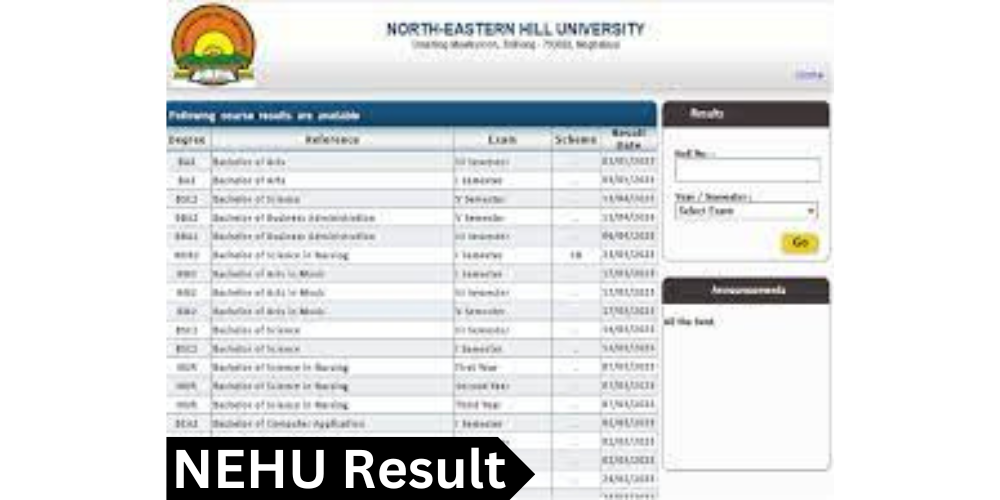News
Exploring Status for Girls: Understanding and Empowering Young Women

In today’s world, the concept of status for girls holds immense significance as we strive for gender equality and empowerment. Status for girls encompasses various aspects of their lives, including social, educational, economic, health, and psychological dimensions. Understanding the complexities surrounding status for girls is crucial in advocating for their rights and creating opportunities for their advancement. In this comprehensive guide, we delve into the multifaceted nature of status for girls and explore strategies for promoting their empowerment across different spheres of life.
Introduction to Status for Girls
Status for girls refers to their position or standing in society, encompassing factors such as social recognition, educational attainment, economic independence, and overall well-being. It reflects the opportunities, resources, and support systems available to girls, shaping their experiences and trajectories in life. The concept of status for girls like Manisha Rani is influenced by societal norms, cultural values, and systemic inequalities that impact girls’ access to rights and opportunities.
Factors Influencing Status for Girls
Several factors contribute to the status of girls in society. These include:
- Social and Cultural Norms: Societal expectations and cultural beliefs play a significant role in defining the status of girls within their communities.
- Economic Background: The financial resources and economic stability of girls’ families can affect their access to education, healthcare, and other opportunities.
- Educational Attainment: Girls’ level of education is closely linked to their status and opportunities for personal and professional growth.
- Access to Resources and Opportunities: Availability of resources such as healthcare, education, and employment opportunities significantly impact girls’ status and well-being.
- Gender Equality and Empowerment Initiatives: Efforts to promote gender equality and empower girls through advocacy, policy interventions, and community programs can positively influence their status.
Understanding these factors is essential for addressing the challenges girls face and promoting their empowerment in various spheres of life.
Social Status for Girls
Social status plays a crucial role in shaping girls’ identities, relationships, and opportunities. It encompasses factors such as family background, peer relationships, and community recognition. Girls from marginalized communities or disadvantaged backgrounds may face barriers to social inclusion and recognition, impacting their self-esteem and sense of belonging.
Promoting social inclusion and addressing stereotypes and biases are essential steps in enhancing the social status of girls. Encouraging positive social interactions, fostering supportive environments, and challenging discriminatory practices can help create a more inclusive society where girls feel valued and respected.
Educational Status for Girls
Education is a fundamental right and a powerful tool for girls’ empowerment. Access to quality education enables girls to develop knowledge, skills, and confidence, paving the way for future opportunities and success. However, millions of girls around the world still face barriers to education due to factors such as poverty, cultural norms, and gender discrimination.
Investing in girls’ education is not only a matter of social justice but also a strategic investment in the future. Educated girls are more likely to contribute to their communities, participate in the workforce, and break the cycle of poverty. Efforts to promote girls’ education should focus on addressing structural barriers, providing support systems, and promoting gender-sensitive teaching and learning environments.
Economic Status for Girls
Economic status encompasses girls’ access to financial resources, employment opportunities, and economic independence. Gender disparities in the workforce, unequal pay, and limited access to financial services are some of the challenges girls face in achieving economic empowerment. Additionally, cultural norms and social expectations may limit girls’ participation in economic activities or entrepreneurship.
Empowering girls economically requires addressing structural inequalities and creating enabling environments for their participation in the economy. Providing access to financial education, vocational training, and entrepreneurial skills can equip girls with the tools they need to succeed in the workforce and contribute to economic development.
Health Status for Girls
Health status is a critical component of girls’ overall well-being and quality of life. Access to healthcare services, reproductive health education, and nutrition plays a vital role in determining girls’ health outcomes. However, girls may face barriers to healthcare access due to factors such as poverty, lack of awareness, and social stigma.
Promoting girls’ health requires comprehensive approaches that address both physical and mental health needs. Investing in healthcare infrastructure, expanding access to essential services, and raising awareness about reproductive health and hygiene are essential steps in improving girls’ health status and reducing disparities.
Psychological Status for Girls
Psychological status refers to girls’ mental health and emotional well-being. Girls may experience stress, anxiety, and depression due to various factors such as academic pressure, social expectations, and interpersonal conflicts. Stigma surrounding mental health issues may prevent girls from seeking help or accessing support services.
Creating supportive environments and promoting positive mental health practices are crucial for addressing girls’ psychological needs. Encouraging open dialogue, providing access to counseling services, and destigmatizing mental health issues can help girls feel empowered to prioritize their well-being and seek help when needed.
Challenges and Opportunities
Despite progress in gender equality and girls’ empowerment efforts, significant challenges persist. Discriminatory practices, cultural barriers, and systemic inequalities continue to limit girls’ opportunities and access to rights. Addressing these challenges requires collective action and sustained commitment from governments, civil society organizations, and communities.
At the same time, there are numerous opportunities for promoting girls’ empowerment and advancing gender equality. Investing in girls’ education, expanding access to healthcare services, and creating supportive environments are key strategies for unlocking girls’ potential and building a more inclusive society.
Promoting Equality and Empowerment
Promoting gender equality and girls’ empowerment requires concerted efforts across multiple sectors and stakeholders. Governments play a crucial role in enacting laws and policies that protect girls’ rights and promote gender equality. Civil society organizations and grassroots movements contribute to raising awareness, advocating for change, and providing support services to girls and their families.
Individuals can also make a difference by challenging stereotypes, supporting girls’ education initiatives, and advocating for gender-sensitive policies in their communities. By working together, we can create a world where every girl has the opportunity to thrive, succeed, and realize her full potential.
Conclusion
Status for girls is a multifaceted concept that encompasses various dimensions of their lives, including social, educational, economic, health, and psychological aspects. Understanding the challenges and opportunities girls face is essential for promoting their empowerment and advancing gender equality. By investing in girls’ education, health, and well-being, we can create a more inclusive and equitable society where every girl has the opportunity to thrive and succeed.
As we continue our efforts to promote girls’ rights and empowerment, let us remember that every action, no matter how small, contributes to a brighter and more promising future for girls everywhere.
In conclusion, let us strive to create a world where every girl has the opportunity to realize her dreams, fulfill her potential, and live a life of dignity and equality.
Let us stand together in solidarity with girls everywhere and work towards a future where their status is determined not by societal norms or cultural expectations, but by their inherent worth and limitless potential.
News
Understanding Empathy and Accountability: Reflecting on the Lexi Bonner Incident

The Lexi Bonner incident has sparked widespread discussion and debate, drawing attention to the crucial concepts of empathy and accountability. Understanding these ideas is essential not only to comprehend the incident but also to foster a more empathetic and accountable society.
Understanding Empathy
Definition of Empathy
Empathy is the ability to understand and share the feelings of another person. It’s about putting yourself in someone else’s shoes and feeling what they feel.
Different Types of Empathy
There are three main types of empathy:
- Cognitive Empathy: Understanding someone else’s perspective.
- Emotional Empathy: Sharing the feelings of another person.
- Compassionate Empathy: Going beyond understanding and sharing to take action.
The Role of Empathy in Society
Empathy plays a vital role in society by promoting understanding, reducing conflicts, and fostering strong relationships. It helps in creating a supportive community where individuals feel valued and understood.
The Importance of Accountability
Definition of Accountability
Accountability means being responsible for one’s actions and being willing to explain and justify them. It involves taking ownership of decisions and their consequences.
How Accountability Builds Trust
Accountability builds trust by ensuring that actions and outcomes are transparent. When individuals and organisations are accountable, they earn the trust and respect of others.
The Connection Between Accountability and Responsibility
Responsibility and accountability go hand in hand. Being responsible means having an obligation to do something, while accountability means being answerable for the outcomes of those actions.
The Lexi Bonner Incident: A Brief Overview
What Happened in the Lexi Bonner Incident?
The Lexi Bonner incident involved a significant event that caught public and media attention. The details of what exactly transpired are essential to understanding the reactions and the need for empathy and accountability.
Public Reaction and Media Coverage
The incident received widespread media coverage, and the public’s reaction was intense. Social media played a significant role in amplifying the voices and opinions surrounding the incident.
Initial Responses from Involved Parties
The initial responses from the parties involved were varied, highlighting the need for a measured and empathetic approach to handling such situations.
Analyzing the Incident Through Empathy
Empathizing with Lexi Bonner
Understanding Lexi Bonner video perspective and feelings is crucial. Empathizing with her can provide insights into her actions and reactions.
Empathizing with Other Parties Involved
It’s also important to empathize with other parties involved in the incident. Each party’s perspective adds to the overall understanding of the situation.
How Empathy Could Have Changed the Outcome
If empathy had been more prominent in the responses to the incident, the outcome might have been different. Empathy can lead to more thoughtful and considerate actions.
Accountability in the Lexi Bonner Incident
Who Should Be Held Accountable?
Determining who should be held accountable involves examining the actions and decisions of all parties involved.
Steps Taken Towards Accountability
The steps taken towards accountability after the incident are crucial in understanding how the situation was addressed and what measures were implemented.
Lessons Learned About Accountability from the Incident
The incident provides valuable lessons on accountability, highlighting what was done well and what could be improved in the future.
Empathy and Accountability: Two Sides of the Same Coin
How Empathy and Accountability Are Interconnected
Empathy and accountability are deeply interconnected. Empathy helps us understand others, while accountability ensures that our actions reflect that understanding.
Examples of Balanced Empathy and Accountability in Other Incidents
Examining other incidents where empathy and accountability were balanced can provide valuable insights and lessons.
The Importance of Balancing Both in Personal and Professional Life
Balancing empathy and accountability is crucial in both personal and professional life. It leads to better relationships, decision-making, and outcomes.
Empathy in Action: Practical Steps
How to Practice Empathy in Everyday Life
Practicing empathy involves active listening, being open-minded, and putting oneself in others’ shoes.
Empathy Exercises and Activities
Engaging in empathy exercises and activities can help develop and strengthen empathy skills.
Building a More Empathetic Community
Creating a community that values and practices empathy involves collective efforts and commitment.
Building Accountability: Practical Steps
How to Hold Oneself Accountable
Holding oneself accountable involves setting clear goals, monitoring progress, and being honest about mistakes and achievements.
Steps to Encourage Accountability in Others
Encouraging accountability in others requires creating a supportive environment, providing clear expectations, and offering constructive feedback.
Creating an Environment of Accountability
An environment of accountability is built on transparency, trust, and mutual respect.
The Role of Social Media in Shaping Empathy and Accountability
The Influence of Social Media on Public Opinion
Social media significantly influences public opinion by spreading information quickly and widely.
Social Media’s Role in Spreading Empathy
Social media can be a powerful tool for spreading empathy by sharing stories, experiences, and perspectives.
The Impact of Social Media on Accountability
Social media also plays a crucial role in holding individuals and organizations accountable by bringing attention to actions and decisions.
Case Studies: Empathy and Accountability in Other Incidents
Case Study 1: Incident Analysis
Analyzing another incident where empathy and accountability were involved provides valuable insights.
Case Study 2: Incident Analysis
A second case study offers additional lessons and perspectives on the importance of empathy and accountability.
Comparing These Incidents to the Lexi Bonner Incident
Comparing these case studies to the Lexi Bonner Footage incident highlights similarities and differences, offering broader lessons.
Expert Opinions on Empathy and Accountability
What Psychologists Say About Empathy
Psychologists provide valuable insights into the nature and importance of empathy.
Insights from Accountability Experts
Experts in accountability share their perspectives on how to foster and maintain accountability.
Interviews with Thought Leaders
Thought leaders offer their views on the relationship between empathy and accountability and its importance in society.
Moving Forward: Applying Lessons from the Lexi Bonner Incident
How Communities Can Apply These Lessons
Communities can apply the lessons learned from the Lexi Bonner Jump Video incident to foster empathy and accountability.
Policies and Practices for Fostering Empathy and Accountability
Implementing policies and practices that promote empathy and accountability is essential for long-term positive change.
Encouraging a Culture of Empathy and Accountability
Creating a culture that values and practices empathy and accountability involves continuous effort and commitment.
Conclusion
The Lexi Bonner incident serves as a powerful reminder of the importance of empathy and accountability. By understanding and practicing these concepts, we can create a more compassionate and responsible society.
FAQs
What is empathy and why is it important?
Empathy is the ability to understand and share the feelings of another person. It’s important because it fosters understanding, reduces conflicts, and strengthens relationships.
How can I practice empathy in my daily life?
You can practice empathy by actively listening, being open-minded, and putting yourself in others’ shoes.
What does accountability mean in the context of the Lexi Bonner incident?
In the context of the Lexi Bonner incident, accountability means being responsible for one’s actions and being willing to explain and justify them.
How can social media influence empathy and accountability?
Social media influences empathy and accountability by spreading information, sharing stories and experiences, and bringing attention to actions and decisions.
What can we learn from the Lexi Bonner incident about handling similar situations in the future?
The Lexi Bonner incident teaches us the importance of empathy and accountability in handling similar situations, emphasizing the need for understanding and responsibility.
News
NTRUHS Results: A Complete Guide for Students

Introduction
In the realm of medical education in India, the Dr. NTR University of Health Sciences (NTRUHS) holds significant importance. As students progress through their academic journey in various health sciences disciplines, one inevitable milestone they encounter is the announcement of NTRUHS results. These results are pivotal, determining the trajectory of their careers and academic pursuits. In this comprehensive guide, we will delve into everything you need to know about NTRUHS results, from understanding the examination process to interpreting grades and accessing results online.
Understanding NTRUHS
Established with a noble vision to impart quality education in health sciences, NTRUHS stands as a beacon of excellence in the field. It encompasses a wide array of courses ranging from undergraduate to postgraduate levels, catering to the diverse needs of aspiring healthcare professionals. The university operates with a mission to nurture competent, compassionate, and ethical professionals who can serve society effectively.
NTRUHS conducts examinations periodically to assess the knowledge and skills of students across various disciplines same as Nehu Result. These examinations are meticulously designed to evaluate students’ understanding of theoretical concepts, practical proficiency, and clinical acumen. The evaluation process adheres to stringent standards to ensure fairness and transparency.
How to Check NTRUHS Results
Accessing NTRUHS results is a straightforward process facilitated by the university’s official website. Follow these simple steps to retrieve your results:
- Visit the official website of NTRUHS.
- Navigate to the ‘Results’ section on the homepage.
- Select the relevant course and examination type (regular/supplementary).
- Enter your roll number and other required details.
- Click on the ‘Submit’ button to view your results.
Alternatively, students can also opt for SMS-based result services or visit their respective colleges for result notifications.
Different Types of NTRUHS Results
NTRUHS results are categorized into three main types:
- Regular Examination Results: These results pertain to the main examinations conducted by NTRUHS at the end of each academic session.
- Supplementary Examination Results: In case students fail to clear certain subjects in the regular exams, they have the opportunity to appear for supplementary exams to improve their scores.
- Revaluation Results: Students dissatisfied with their exam scores can apply for revaluation of their answer scripts. The revaluation results provide them with a chance for score reassessment.
Interpretation of NTRUHS Results
Understanding the grading system employed by NTRUHS is crucial for interpreting results accurately. The university follows a standardized grading system, wherein each grade corresponds to a specific range of marks. For instance, an ‘A’ grade may signify marks between 90-100%, while a ‘B’ grade may represent marks between 80-89%.
It’s essential for students to grasp the significance of their grades in relation to their academic and professional pursuits. Higher grades not only reflect academic excellence but also enhance students’ competitiveness in the job market and eligibility for further studies.
Common FAQs about NTRUHS Results
- What should I do if I encounter difficulties in accessing my results online?
- If you face any technical issues while checking your results online, reach out to the university’s technical support team for assistance.
- How can I apply for revaluation of my answer scripts?
- Students interested in revaluation can submit their applications along with the prescribed fee within the stipulated time frame specified by NTRUHS.
- How long does it take for revaluation results to be declared?
- The timeline for revaluation results varies depending on the volume of applications received. Generally, it takes a few weeks for the revaluation process to be completed.
- Are there provisions for supplementary exams?
- Yes, NTRUHS offers supplementary exams to provide students with an opportunity to clear failed subjects and progress in their academic journey.
- Whom should I contact for queries related to NTRUHS results?
- For any queries or clarifications regarding NTRUHS results, students can contact the university’s examination department or designated helpline numbers.
Tips for Success with NTRUHS Results
Achieving favorable results in NTRUHS exams requires diligent preparation and strategic approach. Here are some tips to enhance your chances of success:
- Maintain a consistent study schedule and allocate sufficient time for revision.
- Utilize resources such as textbooks, reference materials, and online platforms for comprehensive learning.
- Practice previous years’ question papers to familiarize yourself with the exam pattern and types of questions.
- Seek guidance from experienced faculty members and mentors to clarify doubts and gain insights.
- Stay calm and focused during exams, and manage time effectively to attempt all questions.
Recent Updates and Announcements
Stay updated with the latest announcements and notifications from NTRUHS regarding exam schedules, result declaration dates, and any changes in the evaluation process. Visit the university’s official website regularly and subscribe to relevant communication channels to receive timely updates.
Conclusion
In conclusion, NTRUHS results play a significant role in shaping the academic and professional journey of healthcare aspirants. By understanding the intricacies of result interpretation, accessing results seamlessly, and adopting effective study strategies, students can navigate the challenges associated with NTRUHS examinations successfully. Remember, perseverance, and dedication are the keys to achieving excellence in your academic endeavors. Best wishes for your future endeavors!
In crafting this guide, we aimed to provide comprehensive insights into NTRUHS results, addressing common queries and offering practical tips for success. Whether you’re a current student awaiting results or a prospective applicant preparing for entrance exams, we hope this resource proves valuable in your journey towards academic excellence and professional fulfillment.
News
Unlocking Success: Your Comprehensive Guide to NEHU Results

Introduction
Welcome to our comprehensive guide to NEHU results! Whether you’re a student at North-Eastern Hill University or someone interested in understanding how NEHU results work, you’ve come to the right place. In this article, we’ll delve deep into what NEHU results are, how to access them, interpret them, and navigate through common questions and concerns.
Understanding NEHU Results
NEHU results hold immense significance for students pursuing various courses at the university. These results encompass the outcome of semester exams, entrance exams, and other assessments conducted by NEHU. They serve as a reflection of a student’s academic performance and progress throughout their academic journey with the help of Rajju Bhaiya University Result.
Accessing NEHU Results Online
One of the most convenient ways to check NEHU results is through the official university website. The process is straightforward, requiring students to navigate to the designated results portal, enter their credentials, and access their results. Typically, NEHU announces result publication dates in advance, ensuring students are aware of when to expect their results.
Interpreting NEHU Results
Interpreting NEHU results involves understanding various components such as grades, marks, and GPA (Grade Point Average). NEHU follows a grading system wherein each grade corresponds to a certain range of marks attained by the student. For instance, an “A” grade may signify excellent performance, while a “C” grade may indicate satisfactory performance.
Here’s a simplified breakdown of the grading system used by NEHU:
| Grade | Marks Range |
| A | 80-100 |
| B | 60-79 |
| C | 40-59 |
| D | 20-39 |
| F | Below 20 |
Students can use this information to gauge their academic performance and identify areas for improvement.
Rechecking and Revaluation Process
In cases where students have concerns regarding their NEHU results, the university provides a rechecking and revaluation process. This allows students to request a review of their answer scripts or assessment papers for a thorough reassessment. However, it’s essential to note that this process typically involves a fee, and there are specific timelines within which students must submit their requests.
Common FAQs About NEHU Results
- What to do if unable to access results online?
- If you encounter difficulties accessing NEHU results online, reach out to the university’s IT support or designated helpdesk for assistance.
- How to deal with discrepancies in NEHU results?
- In case of discrepancies or errors in NEHU results, promptly notify the university authorities and follow the prescribed procedure for rectification.
- What if there are delays in result publication?
- Delays in result publication may occur due to various reasons. Stay updated through official announcements from NEHU regarding revised result publication dates.
- Is there a provision for supplementary exams?
- NEHU may offer supplementary exams for students who require an opportunity to improve their performance in specific subjects. Consult with the university administration for further details.
- How do NEHU results affect academic progression?
- NEHU results play a crucial role in determining a student’s academic progression, including eligibility for further studies, scholarships, and other opportunities. It’s essential to strive for satisfactory results to ensure smooth academic advancement.
Tips for Academic Success at NEHU
To excel academically at NEHU, consider implementing the following tips:
- Effective Studying: Develop a structured study routine and utilize effective study techniques to maximize learning outcomes.
- Time Management: Manage your time efficiently to balance academic responsibilities with other commitments and activities.
- Seeking Academic Support: Don’t hesitate to seek assistance from professors, tutors, or academic support services whenever needed. Collaboration and guidance can significantly enhance your learning experience at NEHU.
Conclusion
In conclusion, understanding NEHU results is essential for students pursuing education at North-Eastern Hill University. By familiarizing yourself with the process of accessing, interpreting, and addressing concerns regarding NEHU results, you can navigate your academic journey with confidence and clarity. Remember to utilize the resources available and seek assistance whenever needed to ensure academic success at NEHU.
Final Thoughts
We hope this comprehensive guide has provided valuable insights into NEHU results and equipped you with the knowledge necessary to navigate through your academic endeavors successfully. For any further questions or assistance, don’t hesitate to reach out to NEHU authorities or refer to the provided resources. Here’s to unlocking success through NEHU results!
Expanding further, it’s worth mentioning that NEHU results are not only crucial for individual academic progress but also hold significance in the broader context of career prospects and future opportunities. Employers and higher education institutions often consider academic performance as a determining factor in recruitment and admissions processes. Therefore, maintaining satisfactory results at NEHU can open doors to various career paths and educational pursuits.
Moreover, NEHU results serve as a benchmark for evaluating the effectiveness of academic programs and teaching methodologies. By analyzing trends in student performance and identifying areas of improvement, NEHU can enhance the quality of education and ensure that students receive the support they need to succeed.
It’s also essential for students to take proactive steps in managing their academic journey at NEHU. This includes attending classes regularly, actively engaging in coursework, seeking clarification on concepts when needed, and participating in extracurricular activities to foster holistic development.
Lastly, while NEHU results provide valuable feedback on academic performance, it’s essential to remember that they are not the sole measure of success. Each student has unique strengths, interests, and aspirations, and academic excellence is just one aspect of a fulfilling and meaningful educational experience. Strive for personal growth, pursue your passions, and embrace the journey of learning, both inside and outside the classroom.
In essence, NEHU results serve as guideposts in the academic journey, offering insights, challenges, and opportunities for growth. By understanding and leveraging the information provided by NEHU results, students can chart a course towards success and fulfillment in their academic pursuits and beyond.
Final Thoughts
We hope this comprehensive guide has provided valuable insights into NEHU results and equipped you with the knowledge necessary to navigate through your academic endeavors successfully. For any further questions or assistance, don’t hesitate to reach out to NEHU authorities or refer to the provided resources. Here’s to unlocking success through NEHU results!
Expanding further, it’s worth mentioning that NEHU results are not only crucial for individual academic progress but also hold significance in the broader context of career prospects and future opportunities. Employers and higher education institutions often consider academic performance as a determining factor in recruitment and admissions processes. Therefore, maintaining satisfactory results at NEHU can open doors to various career paths and educational pursuits.
Moreover, NEHU results serve as a benchmark for evaluating the effectiveness of academic programs and teaching methodologies. By analyzing trends in student performance and identifying areas of improvement, NEHU can enhance the quality of education and ensure that students receive the support they need to succeed.
It’s also essential for students to take proactive steps in managing their academic journey at NEHU. This includes attending classes regularly, actively engaging in coursework, seeking clarification on concepts when needed, and participating in extracurricular activities to foster holistic development.
Lastly, while NEHU results provide valuable feedback on academic performance, it’s essential to remember that they are not the sole measure of success. Each student has unique strengths, interests, and aspirations, and academic excellence is just one aspect of a fulfilling and meaningful educational experience. Strive for personal growth, pursue your passions, and embrace the journey of learning, both inside and outside the classroom.
In essence, NEHU results serve as guideposts in the academic journey, offering insights, challenges, and opportunities for growth. By understanding and leveraging the information provided by NEHU results, students can chart a course towards success and fulfillment in their academic pursuits and beyond.
-

 Entertainment1 year ago
Entertainment1 year agoDownload 300mb, 480p, and 720p movies at All Movies Hub.
-

 Mangago Tech2 years ago
Mangago Tech2 years agoYaoi A Genre of Manga
-

 Technology2 years ago
Technology2 years agoMangago Mangago Yaoi New Manga Policy
-

 Mangago Tech2 years ago
Mangago Tech2 years agoHow to fix MangaGo Website Issues?
-

 Mangago Tech2 years ago
Mangago Tech2 years agoHow To Fix Mangago app Not Opening?
-

 Mangago Tech2 years ago
Mangago Tech2 years agoPopularity of Yaoi manga Around The Map
-

 Health2 years ago
Health2 years agoDoes kratom get you high?
-

 Uncategorized2 years ago
Uncategorized2 years agoDistinction Between Manga And Anime
